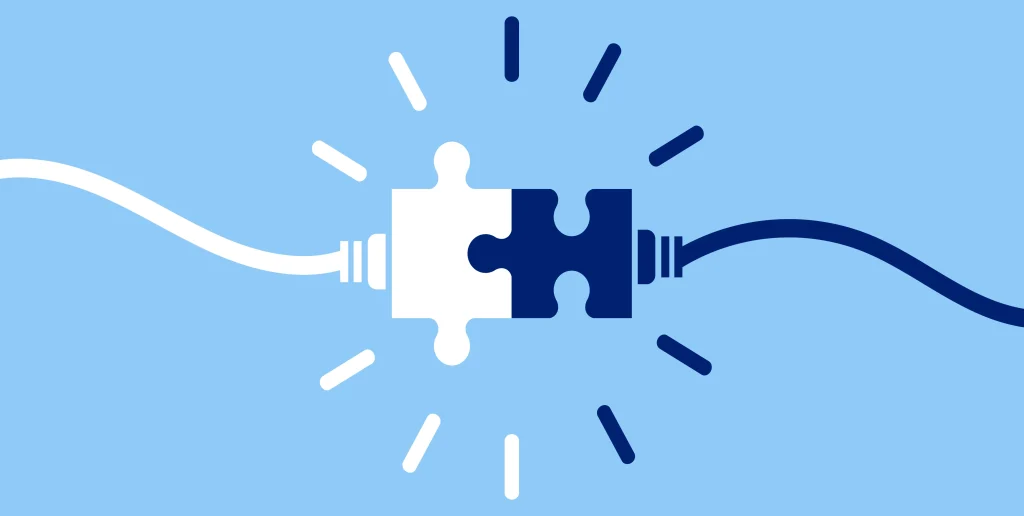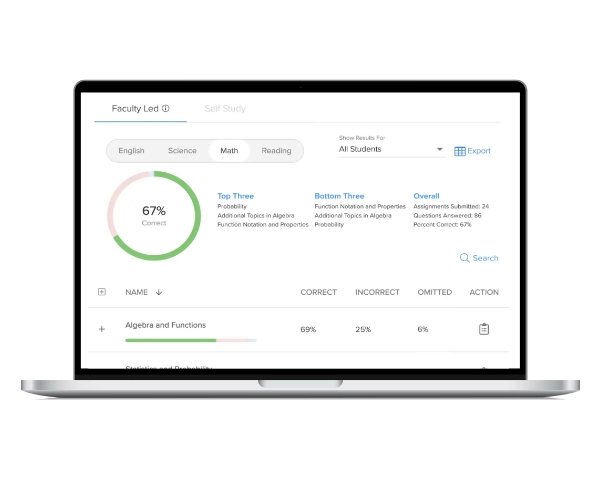Many people believe that Albert Einstein was one of the most brilliant minds in all of human history–and with good reason! However, several myths surround this famous theoretical physicist. In spite of the commonly held belief that he failed math, for example, Einstein actually earned high grades in school. That being said, he did struggle with delayed speech, reading aloud, word retrieval, and expressing his thoughts through writing. This led many of his teachers to believe that “nothing would become” of Einstein, but many educational experts today speculate that he actually struggled with undiagnosed dyslexia.
Schools have (thankfully) changed quite a bit since the early 20th century, and educators now understand that even advanced students can be diagnosed with learning disabilities like dyslexia, dysgraphia, visual impairments, and hearing impairments. These “twice-exceptional” students can thrive in school, including in AP® courses, with proper 504 plan accommodations.
What Is a 504 Plan and What Is Its Purpose?
The U.S. Department of Education states that “Section 504 of the Rehabilitation Act of 1973 protects the rights of persons with diagnosed handicaps in programs and activities that receive Federal financial assistance.” Plans that fall under Section 504 are decided upon by a committee of professionals related to a student’s disability (classroom teachers, learning specialists, etc.) and legally entitle students to specific learning accommodations that will help them succeed in the classroom. For example, a student with dysgraphia may be accommodated with speech-to-text technology to help them write, whereas a student with a hearing impairment may be accommodated with an FM system hearing device.
Who qualifies for a 504 plan?
In order to qualify for a 504 plan, the parent(s) and/or guardian(s) of the student in question would first need to complete a request for evaluation form.
- This form would be sent to the student’s school’s 504 team, who would then review the form and decide if they need to complete a full evaluation.
- If the team decides a full evaluation is necessary, they would then begin the process of assessing the student’s academic performance, medical history, and any other necessary information.
- Once the evaluation is complete, the team would then meet to discuss the results and decide if the student qualifies for a 504 plan.
- If the student does qualify, the team would then create an individualized plan that outlines the accommodations and modifications the student would receive to ensure their success.
- Once the 504 committee has agreed to and signed off on the plan, it becomes legally binding.
What is the difference between a 504 plan and an IEP?
Even among professional educators, there is sometimes confusion surrounding the differences between an IEP (Individualized Education Program) and a Section 504 plan. An IEP and 504 accommodations are both part of educational plans designed to support students with special needs in K-12 education. They do, however, have different eligibility criteria and focus on different areas.
- An IEP is for students who have been identified with a disability under the Individuals with Disabilities Education Act (IDEA), and it provides tailored educational services and support to meet the student’s unique needs, typically through a special education (SPED) program.
- On the other hand, a 504 plan is for students with a disability that limits one or more major life activities, and focuses on providing accommodations to help the student succeed in a regular educational environment. These accommodations can include modifications to the classroom or to testing procedures.
In short, an IEP provides a more comprehensive and individualized approach, whereas a 504 plan focuses on equal access to education through accommodations.
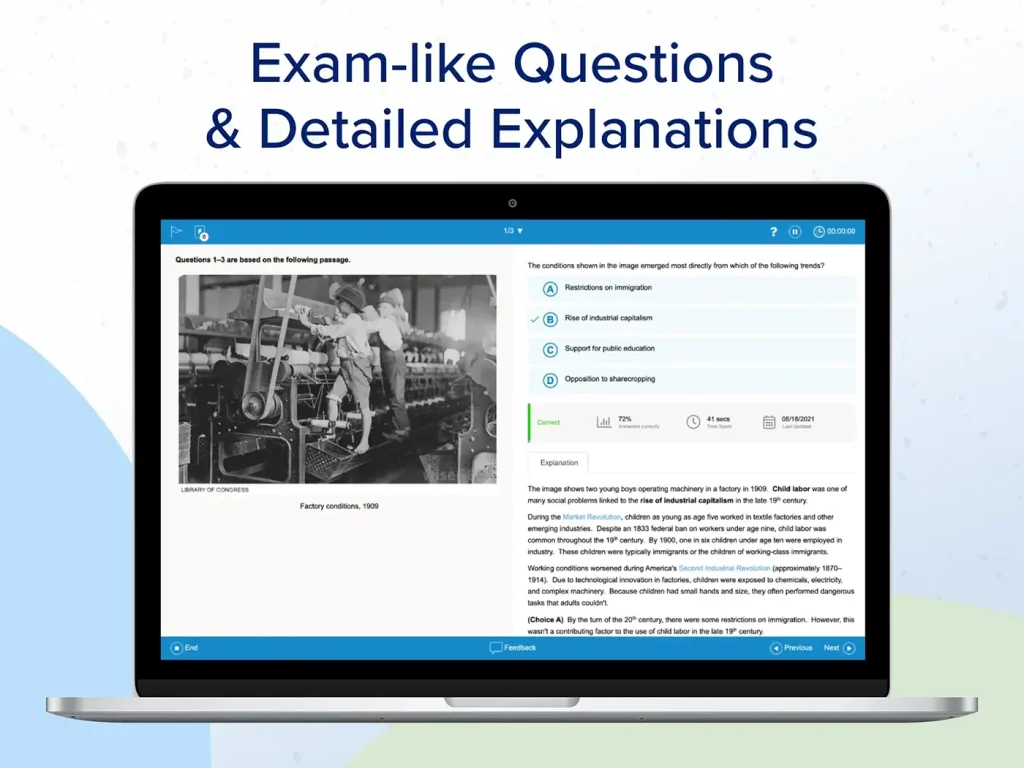
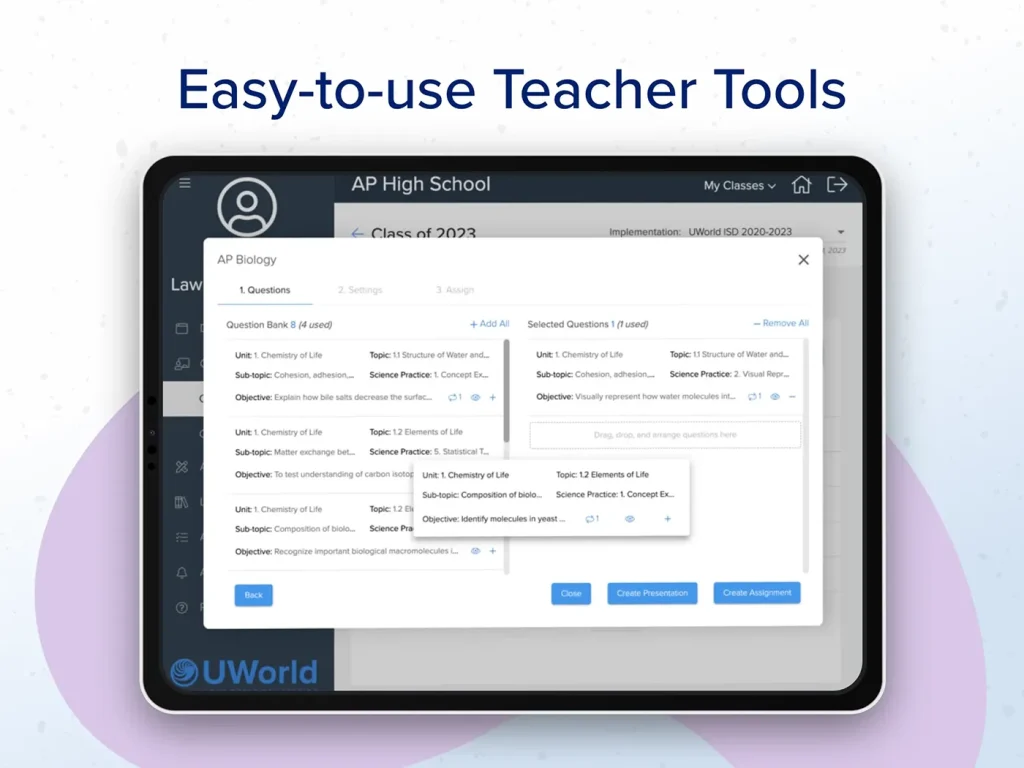
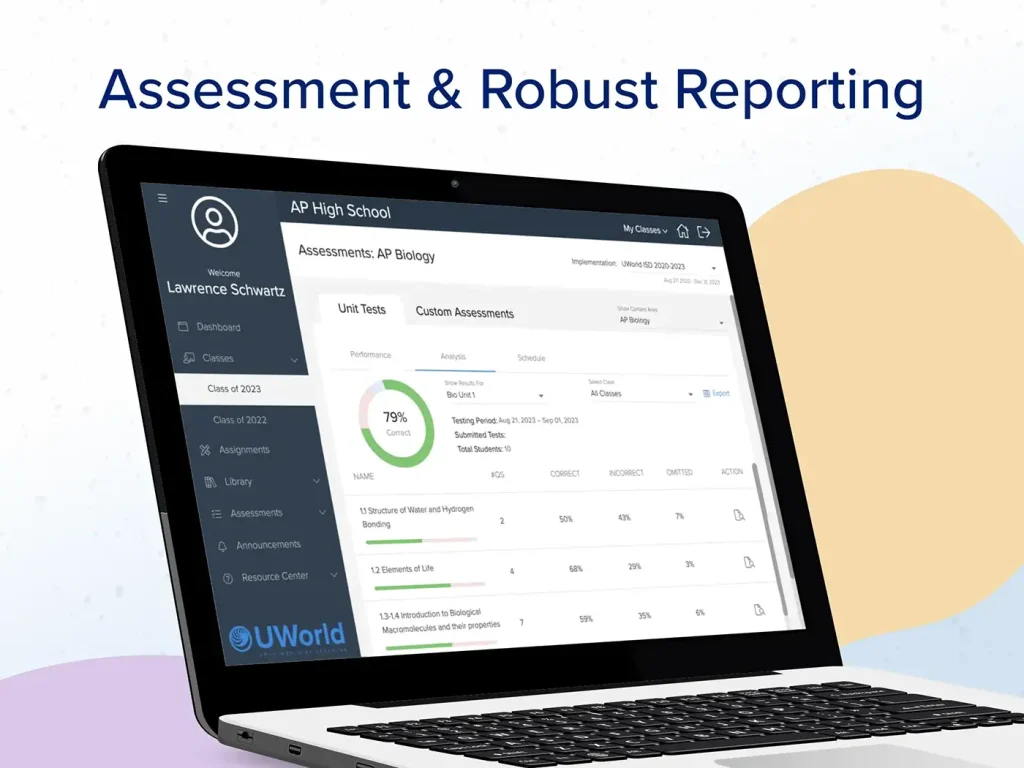
Why do Twice-Exceptional students need support in the AP classroom?
There is a common–and damaging–misconception that if a student has a diagnosed disability, they will not succeed in high-performing course environments, such as AP classes. Not only is this far from the truth, but the idea that students who qualify for 504 support can’t take AP classes is particularly harmful because it widens accessibility gaps within AP programs. On the contrary, students with a 504 plan who are also high achievers are often referred to as “twice-exceptional.” These students can thrive in an AP environment when given the classroom support they need.
Twice-Exceptional and Twice Shy
Going back to the example of Einstein’s experience with school in the early 1900s, students with disabilities historically were often labeled as “difficult,” or “not good at school,” especially if their disabilities were non-visible. Students were rarely tested for learning impairments, let alone accommodated for them so they could succeed in academics. This terrible misunderstanding resulted in generations of brilliant people growing up believing they weren’t smart, or capable of thriving in rigorous course environments. It wasn’t until the latter part of the 20th century that people started trying to understand learning disabilities and realized they had absolutely no effect on a student’s intelligence or potential for academic success. Up until this point, highly-motived “twice-exceptional” students were usually left out of conversations about advanced courses, often being told they simply were “not a good fit.”
A current Arlington ISD teacher recently spoke about her own high school experience as an AP student with ADHD. Without a 504 plan, she did not receive the supports she needed to thrive in her AP classes. She now strives to advocate for her own students with learning impairments:
“The expectations were really high for me to do great work, but I couldn’t focus in class. I turned in a lot of assignments late… Each year I dropped an AP class because I was failing, badly–by senior year, I only had AP math left. When it was time for independent work in class, the tiniest things distracted me, so I didn’t even try. I ended up taking everything home to finish. There were many mornings I woke up hours earlier than [usual] to finish assignments before class. With [unaccommodated] ADHD and high expectations, I became anxious and depressed. I got little to no sleep. I couldn’t stay awake in a lot of my classes. I needed limited distractions, chunked assignments, and time extensions. I needed help with time management and accountability.”
~ Sarah A, Arlington ISD teacher with ADHD and former AP student
Open-Enrollment Has Opened the Door for 504 Students
There are many teachers like Sarah who are determined to provide equitable opportunities to students with 504 plans. They want their “twice-exceptional” students to succeed in advanced courses, and educational institutions are beginning to follow suit. The College Board® promotes open enrollment policies for AP classes, and many school districts have been allowing all students who want to enroll in them to do so over the past several years. Not only can students with 504 plans get the accommodations they need to support their learning, but they can also challenge themselves with rigorous AP opportunities that will prepare them for the challenges of college.
On the other hand, students who have always strived for academic excellence and have taken on the challenge of advanced coursework have a better chance of succeeding in their classes now because, if needed, they are more likely to receive 504 learning accommodations. If students like Sarah are supported with a 504 plan, they will have a much better chance of thriving in an AP course environment.
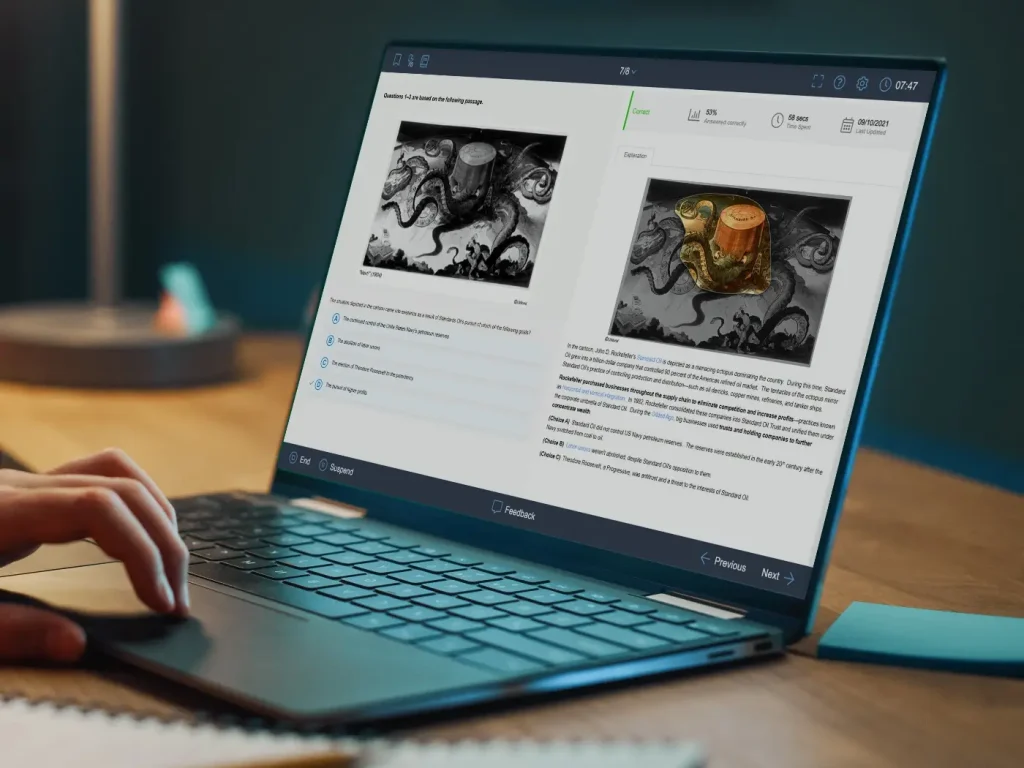
How Exceptional Teachers Can Support Twice-Exceptional Students
AP teachers play an “exceptional” role in helping students with 504 plans succeed both academically and emotionally. Section 504 plans are created on an individual basis to ensure that students with disabilities receive accommodations that enable them to academically thrive to the fullest extent possible. With the right supports, students with 504 plans can excel in their AP classes, and teachers have an important role in making sure they are successful. The following are some tips for how to effectively support these students.
Familiarize Yourself With the 504 Plan
- Read the student’s 504 plan thoroughly and ask questions if any information is unclear.
- Meet with the student to explain the plan and discuss the accommodations that are in place.
- Familiarize yourself with any assistive technology that the student may use.
- Work with the student, parents, and other school personnel to ensure that the 504 plan is up-to-date and is meeting the student’s needs.
Create a Supportive Classroom Environment
- Create a welcoming environment in the classroom where students with 504 plans feel safe and accepted. This includes encouraging peer acceptance and respect for differences.
- Utilize effective classroom management techniques, such as positive reinforcement and consistent expectations for all students.
- Check in regularly with the student to ensure that the 504 plan is working and that the student is successful.
- Advocate for the student to ensure their success in the classroom and beyond.
Consistently Provide Accommodations Outlined in the Plan
- Modify assignments and activities to meet the student’s individual needs.
- Provide alternative forms of assessment, when necessary.
- Utilize appropriate technology to enhance the student’s learning experience.
- Provide individualized instruction and support.
Assess and Document Student Needs and Progress
- Document the student’s progress in meeting their academic goals.
- Monitor the student’s progress and modify the 504 plan as needed.
- Collaborate with the student’s parents/caregivers and other professionals in the student’s life to ensure the effectiveness of the 504 plan.
- Consult with the student’s 504 team about the student’s documented progress.
Consistently Provide Accommodations Outlined in the Plan
- Provide timely and consistent communication to the student and their parents. This includes sending emails, making phone calls, or scheduling face-to-face meetings to discuss the student’s progress and any concerns that may arise.
- Make sure to review the student’s 504 plan regularly and discuss any changes with the student and their parents.
- Create a safe, respectful environment for the student to express any concerns or questions.
- Utilize technology to stay in contact with the student and their parents, such as virtual meetings, text messaging, or online forms.
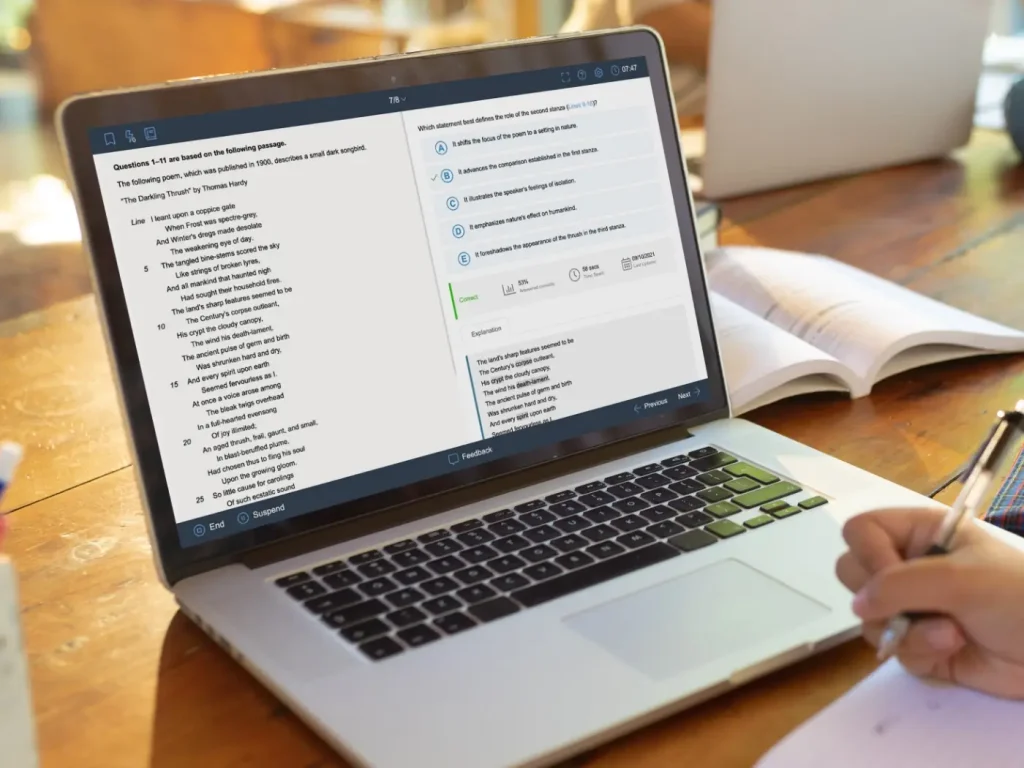
A Note About English Language Learners
When discussing student accommodations in the classroom, it’s important to mention English language learners. ESL (English as a Second Language), ELL (English Language Learner), and LEP (Limited English Proficient) students have also historically been underrepresented in AP classes. With the right language accommodations, however, they, too, have been able to succeed in them. This is a significant topic in and of itself, however, and warrants an article fully dedicated to just that subject.
Key Takeaways
Understanding how to support “twice-exceptional” students in the AP classroom is essential for promoting a safe and inclusive learning environment. It ensures that students with learning disabilities have access to the same quality of education as their peers. Providing support to students with 504 plans in the AP classroom is an important step towards creating an equitable and successful learning environment for all students.
At UWorld, our exam-like questions offer explanations that provide students with diverse learning supports, such as individualized pacing, detailed illustrations, and in-depth written descriptions. Our Learning Tools for AP Courses are designed to accommodate students to help them succeed.
Frequently Answered Questions (FAQs)
Where can I find out more information on Section 504 of the Rehabilitation Act of 1973?
Information on Section 504 of the Rehabilitation Act of 1973 can be found on the U.S. Department of Education’s website. The website provides links to a variety of resources, including guidance documents and FAQs. Additionally, information on Section 504 can also be found on the U.S. Department of Justice’s website, as well as the websites of other federal agencies.
What kind of accommodations might I see on a 504 plan?
Accommodations commonly included on 504 plans can vary greatly depending on the individual student’s needs, but may include modifications to the learning environment, such as additional time for tests, preferential seating, the use of assistive technology, or accommodations related to physical access. Other accommodations may include providing students with extra time to complete assignments, modified grading scales, or changes to assessment methods.
Can a school deny Section 504 accommodations in an AP Course?
Absolutely not. Once a school has accepted a 504 plan for a student, its specified learning accommodations are legally-binding. Denying them to a student in any of their classes, including advanced courses, can result in legal action against a school. As far as AP testing goes, The College Board also offers varying testing accommodations to qualifying students with Section 504 plans.
What kind of testing accommodations are available on AP exams?
The College Board offers several AP testing accommodations to ensure that all students have equal access to the tests. Some of these include extended time, a separate testing location, a computer for essay responses, permission to use a calculator, and permission to take the exam over two days. Additionally, students can request to record audio of their responses, to use a reader or scribe to assist in completing the exam, or to take the exam in a separate room with reduced distractions.
What criteria does the College Board require to qualify a student for AP testing accommodations?
The College Board requires that students seeking accommodations for Advanced Placement (AP) testing must have a documented disability that is recognized by the individual’s school district as qualifying for special education services or accommodations. The disability must also be verified by an appropriate professional (e.g. a physician, psychologist, learning specialist, etc.) and must meet the College Board’s definition of a disability. The student must also provide evidence that the disability has a substantial impact on their academic performance and/or their ability to take the AP exam.
How can I support my twice-exceptional student with AP study materials?
UWorld’s Learning Tools for AP Courses can support an AP student with a 504 plan by providing them with personalized instruction. This includes individualized pacing, which can be adjusted to suit the student’s needs, as well as practice exams and questions tailored to the student’s level of knowledge. Additionally, UWorld’s Learning Tools provide detailed explanations for why each answer is correct or incorrect, allowing the student to better understand the material and review their mistakes. Finally, UWorld’s Learning Tools provide a comprehensive review of the topics covered in their particular AP course, helping the student to fully prepare for their exams.
